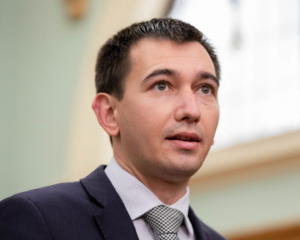Mikheil Saakashvili, the 40-year-old United States-educated lawyer and president of Georgia, has much to learn about realpolitik and the nature and limitations of state power.
Whether he will remain in office long enough to learn them is, however, another matter.
Last Thursday and Friday the hyperactive and frequently volatile Georgian leader began an adventure that those more experienced in the arts of military provocation could have advised him was likely to have just one outcome.
Four days later, with his forces pummelled, pushed back from South Ossetia, and given a good military hiding, all he could do was entreat the West to intervene on his behalf with the big bad Russian bear.
But the West, despite having shown him support in the past, was not exactly in a hurry to accede.
The problem was that, by most accounts, it was President Saakashvili who, having encountered a degree of sustained provocation, started this rash, unlovely episode.
First, a bit of history: in the wake of the break-up of the Soviet Union, the Ossetians found themselves a people divided - to the north of the Caucasus in Russia, and in the south in Georgia.
The South Ossetians, however, despite sharing territory with Georgians, were more inclined towards Russia and a war ensued in 1990-91, followed by a de facto secession in 1991.
For a decade or so those Georgians who remained and Ossetians co-existed, traded, and got on with life under a generally corrupt leadership more or less supported by Moscow.
Then, in 2004, Mr Saakashvili, openly allied to the United States and the West, came to power on a platform that included reclaiming South Ossetia and Abkhazia for Georgia.
In the meantime, Russia had arguably been annexing Ossetia by stealth, which Georgians inevitably saw as a prelude to possible assaults on their own territorial integrity, and thus provocative in the extreme.
On Thursday night, under the guise of cease-fire with warring Ossetian militia, President Saakashvili, having earlier cut off water supplies, launched an all-out assault on the main town of Tskhinvali.
Perhaps gambling that with world attention on the opening of the Olympic Games in Beijing and with Russian Prime Minister Vladimir Putin in attendance, he could press home and consolidate Georgian advantage before anyone noticed.
But he gambled wrongly.
The revealing sight over the weekend of a purposeful former president Putin back in Russia and pressing the flesh with an arrary of high ranking military officials was indication enough, for those who have long suspected it, that it is the former president and ex-KGB hard man who still wields the real power in Russia.
And, as with Chechnya, when it comes to matters territorial, he has been shown to be particularly uncompromising.
So it was to prove on this occasion, with the Russian army and airforce taking the opportunity not only to evict Georgian troops from Tskhinvali, but to hammer other Georgian targets for good measure.
United States Vice-president Dick Cheney has spoken out against this "Russian aggression", but elsewhere in the West there has been silence.
There is no mood for involvement in such a territorial spat.
As published in this newspaper yesterday, both sides are behaving badly; it is outrageous that Russia is attacking Georgian towns and airfields.
Restraint is urgently needed.
But the moral of this tragic little story is that if you are going to kick sand in the face of someone several times bigger and more powerful than you, then you had better have persuasive muscle and a pretty good strategic plan to back you up.
President Saakashvili, it appears, had neither.
Not only has he forfeited disputed South Ossetia, probably permanently, it looks as if the other contentious semi-autonomous territory, Abkhazia, will go the same way.
In addition, his precipitous actions have destroyed a good part of the South Ossetian town of Tskhinvali, led to the loss of many lives and unnecessarily created a great deal of social chaos and suffering.
In all likelihood he has stymied Georgian ambitions towards Nato membership and closer alliances with western Europe.
And finally, in a stunning trifecta of own-goals, he has probably sealed his personal fate: in the face of this comprehensive misjudgement with all its counter-productive repercussions, it seems unlikely in the long term that he can survive as Georgian leader.
Yes, there is fault to be laid at Prime Minister Putin's door, and President Saakashvili may well now bleat that the power of Moscow is overwhelming, full of ambitious intent and dangerous to Western democracy, but all he has done through his ill-advised militarism is to consolidate it.












